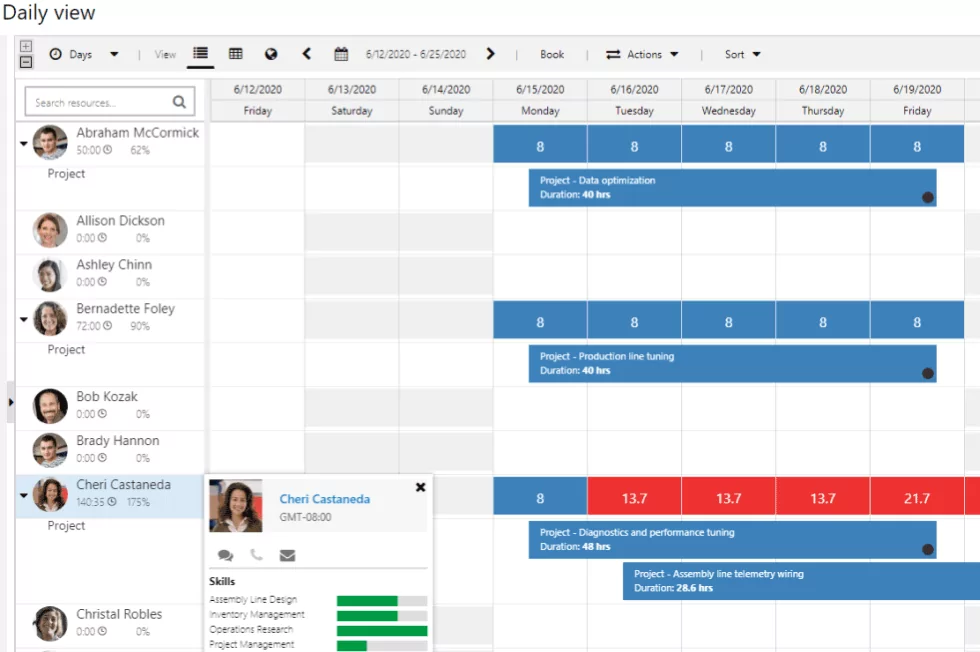
For project businesses such as Architecture, Engineering & Construction, ETO Manufacturing and Professional services, selecting a project-centric solution to manage projects, finances and analytics can be a daunting task.
Microsoft just released a new solution to address a segment of this market. It is called Dynamics 365 Project Operations (D365PO). It is part of the Dynamics business application suite and is an enhancement and separation of the existing project management and accounting modules inside Dynamics 365 Finance (D365F) as well as Project Service Automation (PSA).
This advancement is exciting because it means that D365PO is moving toward the concept of PBA, a new category of software solutions, now recognized by Forrester, designed specifically for project-driven organizations.
However, not all PBA solutions are the same, nor do they serve the same types of customers.
If you’re a project business considering D365PO, you need to know the inside scoop before signing on. D365PO might be exactly what you’re looking for, but it also might be missing some key functions you need to be successful.
In line with Microsoft’s business applications Go-To-Market strategy, D365PO is meant to provide a horizontal platform and baseline functionality for project-driven organizations, while relying on the partner ecosystem to refine and improve those capabilities as required for particular industries or business needs. That is where Adeaca Project Business Automation (PBA) comes in.
This is the first blog in a series that will provide a comprehensive high-level overview of the project business functionality found in D365PO and Adeaca PBA.
Adeaca PBA vs. Dynamics 365 Project Operations
Adeaca PBA is a solution that brings all the primary project functions of a project business inside the Microsoft Dynamics 365 Finance (D365F) ERP. Essentially, PBA is an all-in-one platform on which project-based companies can run their entire business. (Think Construction ERP).
Similar to PSA, much of the new functionality of D365PO resides in a CRM-based platform, supporting the front-end sales process while moving away from the ERP functionality where the more sophisticated financial and operational components exist. As a result, D365PO will not be able to address the same level of complexity, depending on how it’s deployed.
Varying Degrees of Complexity Determines Should Determine What Works Best
Every organization’s needs are different and there are varying degrees of complexity. However, the bottom line is, the simpler your projects are in complexity and length, the more suited for D365PO you may be. The more complex your projects are, the more you should seek something like Adeaca PBA.
For example, if your company has relatively simple project business needs, maybe a high number of smaller projects, D365PO (a combination of D365F and Microsoft’s CRM, Customer Engagement) might be the perfect solution. But if your company needs strong capabilities in project accounting and revenue recognition, D365F may be the better solution.
It’s important to note that as your project business complexity grows, so do your needs for more sophisticated systems to manage that business. Adeaca PBA can deliver those capabilities.
So, what does a high degree of project business complexity look like? Your projects may involve thousands of tasks that require sophisticated project scheduling capabilities, change management, or real-time synchronization with procurement, inventory, equipment, and other company functions. Your projects span a range of months, maybe even years, that require you to close out your project financials monthly, reforecast your projects, or conduct Earned Value Analysis.
See the graph below to illustrate:
This high degree of project business complexity demands more sophisticated tools to manage those processes. D365PO cannot meet that level of complexity that Adeaca PBA is specifically designed to serve.
Download this Whitepaper: Microsoft Dynamics 365 Project Operations vs Adeaca Project Business Automation to gain a detailed understanding of the capabilities of both systems and how your customers can benefit.
Only You Know What You Need
D365PO is built for a very specific customer, just like Adeaca PBA. If your project business processes are simple and straightforward, D365PO might be all you need. However, if your business demands are more sophisticated, you may need something more. The upcoming blogs in this series will delve into the major functions required for project businesses, comparing the solutions for these functions offered in D365PO to Adeaca PBA.
In today’s increasingly complex project environments, businesses are facing unprecedented challenges in delivering projects on time, within budget, and according…
Project Business Transformation reduces risk, increases efficiency, and enhances decision-making in your project organization. Project Business Automation is a new…
Project Business Transformation is a strategic digital transformation initiative designed to fundamentally change how projects are managed and delivered in…
There is so much hype around the use of AI in project management. What is the reality? Join Chief Category…
In the dynamic landscape of project-driven enterprises, risk is omnipresent. As projects become integral components of your business strategy, the…
Management by exception is a method of business management that focuses on identifying and managing cases that deviate from the…
This website uses cookies.